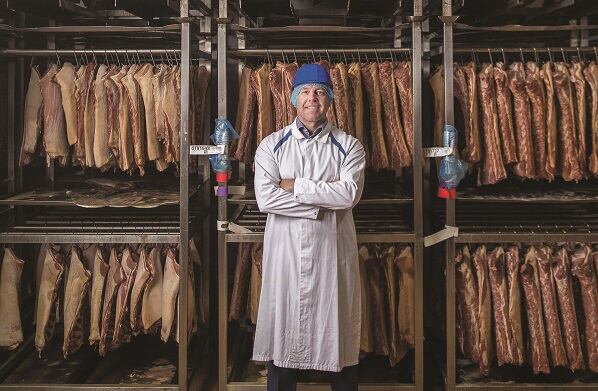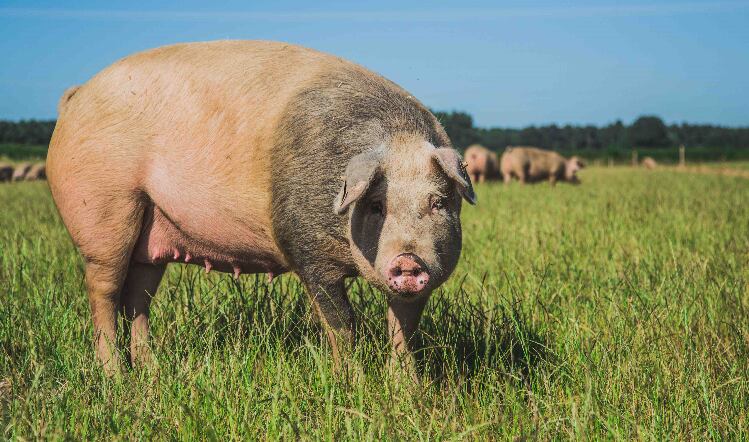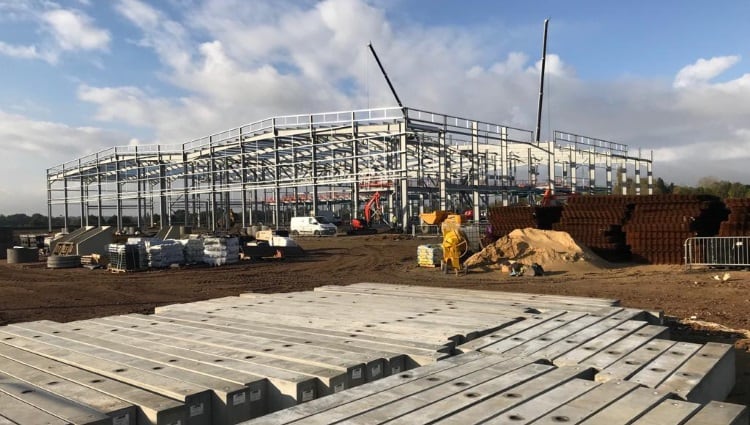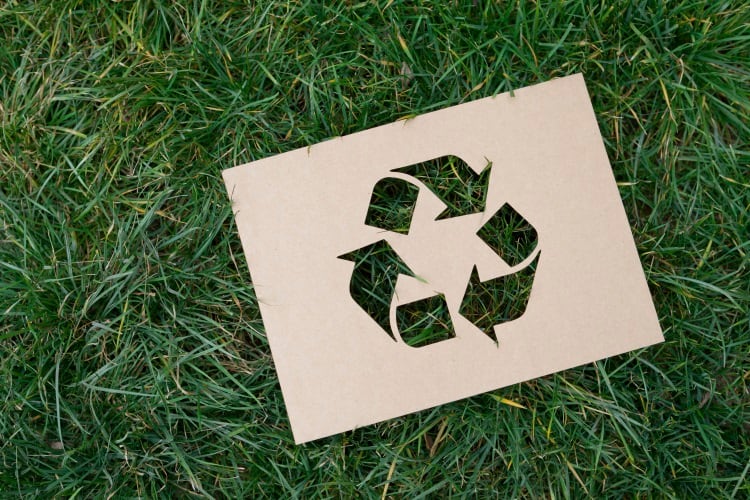Speaking after the release of its full-year results, Cranswick chief executive Adam Couch told Food Manufacture: “We spent £79m last year. This year we’re indicating towards £100m. We’re not shy in investing either in equipment, facilities or general infrastructure.” He was speaking after the company posted results for the 52 weeks to 31 March, including group operating profit of £86.8m, down from £88.4m in the previous 53 weeks on revenue of £1.44bn, down 1.9% from £1.46bn.
In terms of processing investment, the company would continue to spend on its 23,226m2, £75m fresh poultry facility in Eye, Suffolk, occupying 16.2 hectares, said Couch. “That will take the best part of a year to bed down. That will take a good chunk of that investment through this year.”
The plant was the first new UK primary poultry factory to have been built in 30 years, so represented a big milestone for the industry, he said. He added that it had capacity to double current throughput of 1.2m birds annually. Cranswick was also investing in increasing bird count to keep pace with production, having reached 800,000 birds so far.
Foodservice
The new site would predominantly serve supermarket Morrisons, said Couch. “But foodservice does also offer significant opportunities for us, very much at the premium end of the marketplace as well.
“We’re investing in improvements in other refrigeration at our fresh meat operations as well, with a move over to ammonia. That isn’t just good from an environmental point of view, but for maintenance costs as well.”
The investments would make Cranswick “very fit for the future”, said Couch. “We’re able to pick up business and maintain existing business without knocking ourselves over.
“That’s a real concern we would have had previously – that we would make sure we could sweat our assets without causing too much strain on the bulk of people in the business as well. We’ve got an infrastructure now that is fit for the future.”
Continental products
Cranswick’s continental products factory was commissioned and began operations in Bury, Lancashire earlier this month, with the help of £3m capital expenditure to complete the £27m project. It had increased the company’s capacity in the market by 70%.
In its annual results statement, it acknowledged commissioning costs for the plant had been higher than anticipated and expected efficiency improvements were not delivered immediately. However, the business was now making good progress towards achieving planned returns and revenue growth was ahead of expectations.
The plant “allows us growth capabilities in those areas where we see significant growth”, said Couch. “Olives, stuffed peppers and charcuterie products generally are in very strong growth.”
The factory was intended to consolidate production currently located at Cranswick’s two existing Manchester continental products facilities and doubled their footprint and these plants would be sold off, said Couch.
Increased automation and production efficiencies would help offset the effects of Brexit, particularly the decreasing availability of Eastern European workers as UK wages struggled to compete with those of other countries and staff felt uncertain about their employment status.
Environmental initiative
Referring to Cranswick’s investment in its environmental initiative Second Nature, now in its second year, Couch said this was a key area and a contributor to its commercial successes.
“We have been really successful over the course of the last year in the Second Nature initiative. It’s fair to say it’s resonated with not just existing customers, but new ones. I’m not sure we would have been as successful at winning business just on the merits of the quality alone if we didn’t have a sustainable plan.”
On the first anniversary of the UK Plastics Pact, of which Cranswick is an important signatory, it emerged that the company had removed 703t of plastics from its supply chain in the past 12 months. In the past financial year, Cranswick had cut its plastics use by 600t and was aiming to achieve a similar reduction over the next financial year.
The company has eliminated PVC from all packaging; invested in machinery to manage the change from non-recycled to recyclable plastics and is currently rolling out recycling guidelines on packs. It has also updated all trays to contain a minimum 65% recycled content and is in the process of changing trays to be 100% recyclable in the home waste stream.
“We’re also bringing in combined heat and power [CHP] plants,” said Couch. “We have got another three of those coming over the course of the next year and now all our electricity is from renewable sources.
“There’s a lot more we can do. Our pig farming concerns are tending to focus on indoor pigs. Any acquisitions we have done there tend to be on the indoor units and they are extremely efficient for CO2 emissions as well.”
Results statement
In a statement accompanying Cranswick’s full-year results, Couch said: “The last year was one of consolidation following three years of very strong growth. We delivered this year’s results against a backdrop of highly competitive market conditions and ongoing, Brexit-related political and economic uncertainty.”
Like-for-like fresh pork revenue fell 3.8%, reflecting lower wholesale and export demand in the first half of the year.
Cranswick invested £11m across three pork primary processing facilities during the past financial year. That incorporated £3m on phase 1 of the extension to the Hull facility, which included increasing lairage capacity from 600 to 1,600 pigs and chiller capacity from 4,800 to 7,000 carcases.
The company upgraded the refrigeration systems at its Hull facility and commissioned a CHP plant which provides 40% of the site’s electricity requirements.
Following the successful implementation of a Deboflex shoulder deboning system in the previous financial year the company is working with the same equipment provider to develop further automated deboning capability.
Sales dipped in cooked meats driven by cut-price promotions. However, the business developed its Sous Vide and Slow Cook ranges. It spent £17m across its three cooked meat facilities on cooking, cooling and slicing equipment to add capacity and improve efficiencies. A CHP plant was installed at its Milton Keynes cooked meat facility early in the year.




